Germany
participants
The aim of the local dialogue was to gather qualitative information from participating youth about the barriers that young people face to accessing mobility and international opportunities and exercising their rights as mobile young people.
Welcome to the Erasmus Generation In Action (EGIA) project. We offer a unique opportunity led by the Erasmus Student Network and directly supported by the European Parliament to join the EGIA focus groups that will be organized in your country focusing on EU opportunities and EU citizenship. The results of these Focus Groups will be part of the ESN Survey and presented to the European Parliament in the framework of the upcoming elections of 2024 to then develop actions that will aim at promoting active citizenship of youth in the EU and awareness of EU benefits for EU citizens.
II. Detailed overview of Focus Group- Organizer: ESN Bonn e.V.
- ESN NO: ESN Germany
- Date: 31.05.2023
- Moderator: Henry Werstroh
- Number of participants: 4
- Start time: 5:30 pm
- End time: 7:30 pm
- Location:
Europäische Kommission
Regionalvertretung in Bonn
Europa Punkt
Bertha-von-Suttner-Platz 2-4
53111 Bonn
- Overview of the key guiding questions for the focus groups (see below for the guiding questions):
- Motivations
- What were your main motivations to go abroad for learning purposes (study, traineeship, volunteering)? How and when did you start to become interested in going abroad?
- What makes the perfect mobility destination? Which factors should be considered to make the decision to go abroad?
- Available opportunities
- Which mobility opportunities for young people funded by the European Union do you know about?
- Do you also know other funded international opportunities beyond those funded by the EU?
- How did you find out about the different opportunities?
- Rights as (mobile) European citizen
- Which rights and freedoms do you have as a European citizen? Do you know how they would work?
- Barriers to participate in international opportunities
- Less than 15% young people in Europe have mobility experiences. Why do you do think so few people participate in international opportunities?
- Support
- Following the discussion on barriers and support, on a new flipchart page write out the main barriers highlighted by students.
- On another flipchart page write out the main support measures highlighted by students.
- Impacts
- What do you think are the biggest impacts of learning mobility?
- Do learning mobility opportunities like Erasmus benefit only those who take part? How do they benefit others?
- Perception of the European Union and role of learning mobility
- What is the role of international opportunities like Erasmus in the European Union? Do you think they are important?
- Do you think the perception of the European Union changes when you go on mobility? How?
- Participation in democratic life in the European context
- What are the different forms of democratic participation you know about related to European affairs?
- What would motivate you to vote in the European Parliament elections?
- Summary of the main themes and insights emerging from the focus group
The aim of this local dialogue was to focus on access, barriers, ad awareness of EU opportunities among students either with or without an exchange experience.
The local dialogue has shown that the majority of participants are very eager to go on a semester abroad or has already completed one. Nevertheless, actually going on an exchange is still associated with a lot of effort. This follows from the fact, that not enough information and help is provided, a semester abroad is seen as a single activity rather than one that is a group experience and lastly the financial factors play an important role as well. Students are not aware of any other mobility opportunities than Erasmus due to a lack of information.
Despite this, the participants were very aware of their rights and freedoms as European citizens and they perceive international opportunities, like Erasmus, as a crucial factor to European solidarity and cohesion.
- Detailed responses to the key guiding questions, organized by focus group location.
- Motivations
- What were your main motivations to go abroad for learning purposes (study, traineeship, volunteering)? How and when did you start to become interested in going abroad?
- Motivations
Among the participants of the local dialogue the main motivation to go abroad was to study. Two of the participants already completed a semester abroad in their 4th Bachelor semester. Their motivations were to get out of their comfort zone, experience a new culture, be more independent and improve their language skills in French and English. The other two participants are considering a semester abroad.
All of the participants started expressing their interest in a semester abroad the end of their high school education or at the beginning of their higher education studies (2nd semester).
- What makes the perfect mobility destination? Which factors should be considered to make the decision to go abroad?
Both the destination country as well as the visiting university in the foreign country play an important role when choosing a mobility destination.
Regarding the country / city it should be in a modern and clean environment. The destination should offer various culture and social activities for foreign students, and these should be easily accessible. Furthermore, the language spoken in the country as well as at the university plays a major role when choosing a destination. At least one of the common languages (English, Spanish, French, German) should be understood within the majority of the population.
Regarding the university, it should be one that is internationally recognized and at which lectures are held by renowned professors.
Lastly the stay abroad should be affordable and financially supported by different grants.
- Available opportunities
- Which mobility opportunities for young people funded by the European Union do you know about?
Except Erasmus+ and Promos no other mobility opportunities were known by the participants.
- Do you also know other funded international opportunities beyond those funded by the EU?
No other funded international opportunities were known by the participant except funds of foundations in general.
- How did you find out about the different opportunities?
The main difficulties for finding out about these opportunities are too little information in general, no central points of contact that are promoted on university level and online. Furthermore, during the last years caused by the pandemic, it was not possible to establish contact between interested people and students that were on exchange in the past.
- Rights as (mobile) European citizen
- Which rights and freedoms do you have as a European citizen? Do you know how they would work?
Freedom of movement: Freedom of traveling and working everywhere in the European Union
Equal rights obligation: Equal rights for everyone and right to sue for fundamental rights.
Freedom to become a resident in every European country without being deported.
Roaming: no fee, service providers can’t charge you more for calls, texts, and data usage within EU borders
Nondiscrimination
Driver’s license valid in every country of the EU
Healthcare available in every country of the EU with EU health insurance card
Consumer protection mandatory over all EU countries
EU-DSGVO: Protection of data
- Barriers to participate in international opportunities
- Less than 15% young people in Europe have mobility experiences. Why do you do think so few people participate in international opportunities?
The main difficulties for finding out about these opportunities are too little information in general, no central points of contact that are promoted on university level and online. Furthermore, during the last years caused by the pandemic, it was not possible to establish contact between interested people and students that were on exchange in the past.
Following support structures should be in place to enable more young people to go abroad: The exchange should be organized more as a group activity between students going abroad. There should be more opportunities to get to know your fellow students going abroad to bond, organize the trip to and from the country of destination together. Secondly there should be Europe- or country wide online platform for dormitories and residential homes, in order to make it easier to find a place to live during the semester abroad as this is one of the major issues when deciding to go on exchange.
- Support
- Main barriers
- [1] Planning -> Lot of preparation needed before exchange
- [2] Expensive -> Costs of exchange in general as well as paying rent at two different places
- [3] Motivation -> Difficult application process, Don’t know where to start
- People don’t see an advantage in international opportunities
- Not getting chosen for a semester abroad
- No friends
- Personal responsibility
- Being overwhelmed at the beginning of the studies
- Contractual obligations I the home country (lease, work, …)
- Foreign language
- What if something happens? Fear in general
- Main measures
- [1] Money -> More financial support, easier access to work in destination country
- [2] Planning -> More support while planning the semester abroad, websites should be easier accessible
- [3] Exchange as a group activity beginning from the planning until the end of the exchange
- Early approach with arguments for an international experience
- Cover larger amount of travel expenses
- Support network in the destination country
- Cheap accommodation for the first few months
- Impacts
- What do you think are the biggest impacts of learning mobility? Do learning mobility opportunities like Erasmus benefit only those who take part? How do they benefit others?
- Networking
- Self-discovery
- Security
- Independence
- Adventures
- Challenge
- Learn / improve language skills
- Learn about / experience new cultures
- Being in nature of different climates
- Meeting new people
- Making new international friendships
- Building one’s personality
- Perception of the European Union and role of learning mobility
- What is the role of international opportunities like Erasmus in the European Union? Do you think they are important?
The unanimous opinion on whether international opportunities like Erasmus are important is a hard “yes”. International opportunities lead to cultural diversity, individual, personal growth. It helps to curb nationalist tendencies and supports a good cause. All in all, it is a driving factor of Europe growing together, blurs the lines between borders, physical as well personal and finally leads to a sense of cohesion.
- Do you think the perception of the European Union changes when you go on mobility? How?
Yes, it makes you feel that you are part of something bigger, a community that reaches over borders. It further shows that there are like-minded, open people all over Europe that are all eager to fight for a better future.
- Participation in democratic life in the European context
- What are the different forms of democratic participation you know about related to European affairs?
- Elections (on all levels)
- ESN
- Strike
- Conduct a discourse
- Lobbyism (but transparent)
- Right to petition
- Freedom of information
- Public consultations
- What would motivate you to vote in the European Parliament elections?
First of all, seeing that a vote actually leads to change. It should be easy to vote in general and it should be possible and easy to vote from everywhere, even during a semester abroad. Last of all it helps to see that someone unsympathetic is not being elected to office.
- Transcripts of the feedback (from flipcharts, discussions, audio-video recordings).
- Trends and most relevant aspects discussed in the Focus Group
The local dialogue has shown that the majority of participants are very eager to go on a semester abroad or has already completed one. Nevertheless, actually going on an exchange is still associated with a lot of effort. This follows from the fact, that not enough information and help is provided, a semester abroad is seen as a single activity rather than one that is a group experience and lastly the financial factors play an important role as well. Students are not aware of any other mobility opportunities than Erasmus due to a lack of information.
Despite this, the participants were very aware of their rights and freedoms as European citizens and they perceive international opportunities, like Erasmus, as a crucial factor to European solidarity and cohesion.
- Relevant quotes from the Focus Group that stand out.
- “When the money is in the account, you see that the EU exists”
- “Travel ennobles the spirit”
- “Erasmus+ is a driving factor of Europe growing together, blurs the lines between borders, physical as well personal and finally leads to a sense of cohesion.”
- Any other element that fits EGIA’s topics.
- Share all materials (audio, video, photos, and post-its) in your activity subfolder
https://drive.google.com/drive/folders/1AumBPkBMRMEvgqdOB3nK4JcjJ7vw7wPS?usp=drive_link
IV. Next StepsThe results will be handed over to the ESN Germany NO, the International Office of the University of Bonn and the regional representation of the European Commission in Bonn. The gathered insights will help with giving aid to incoming and outgoing Erasmus and international student as well as the planning of future events by ESN Bonn.
A lesson learned was that future focus groups, or cultural events in general have to be promoted far more in order to achieve more participation. Lastly it was seen that the regional office of the European Commission in Bonn is interested in further cooperation ad sharing of insights.
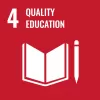
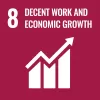
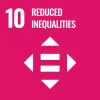
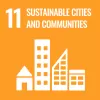
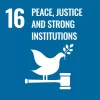
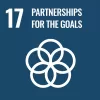
This activity is part of the project:
Erasmus Generation in Action (EGiA)